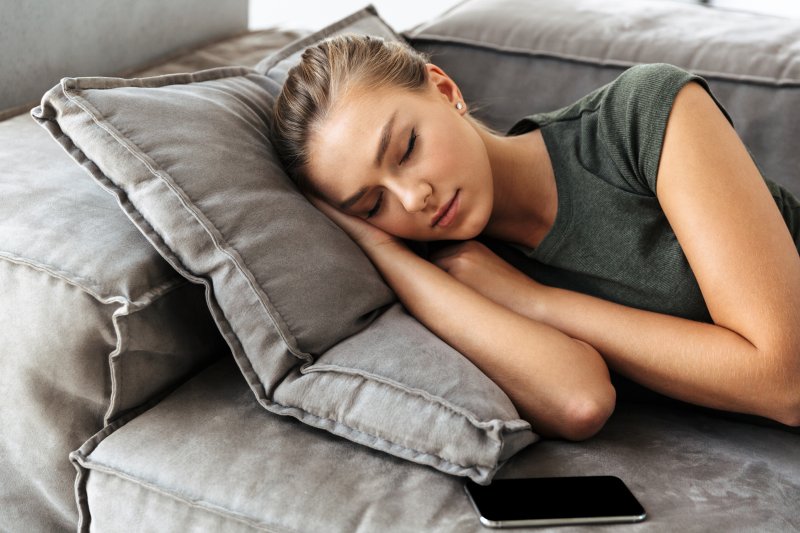Should You Nap While You Have Sleep Apnea?
May 13, 2021

Do you sometimes take naps when you feel tired during the day? It may seem like a good way to replenish your energy, but in some cases, napping might do more harm than good – especially when you’re struggling with a sleep disorder. People who are currently struggling to get quality rest should be fully aware of the true relationship between napping and sleep apnea. Read on to learn why it might be better to wait until evening to get some shut eye even when you’re feeling exhausted.
Why Napping Might Not Help As Much As You Think
Sleep apnea causes you to wake up repeatedly during the night, leading to extensive sleep loss. This can make you feel groggy during the day, so the temptation to nap can be strong. However, there are a few reasons why this might not be as beneficial as you might hope:
- Sleep loss is cumulative; it can’t actually be made up. If you lose two hours of sleep, for example, napping for two hours during the day won’t be the same as you getting that sleep in the first place.
- Napping can throw off your sleep schedule and make it harder to sleep at night. This is a problem because the restorative stages of sleep occur late in the sleep cycle; if you have trouble falling asleep and staying asleep, it will be harder to reach these necessary stages.
- While napping has been shown to restore alertness and enhance performance for some people, this isn’t necessarily the case for those who have sleep apnea.
Given the above, it’s best to avoid napping when possible when you have a sleep disorder.
If You’ve Already Been Diagnosed with Sleep Apnea
If you have sleep apnea, then you need to be smart with your sleep decisions. If you absolutely must nap, only do so with your prescribed oral appliance or CPAP therapy; otherwise, your body will continue to suffer the effects of harmful apneas. In general, you should avoid napping to make sure you’re as tired as possible at night. That way, when it’s time to go to bed, it will be much easier for you to go to sleep.
In addition to sticking to avoiding naps, you should be making other lifestyle choices that positively impact the quality of your sleep. This can include:
- Sleeping on your side instead of your back
- Not drinking alcohol for a few hours before bed
- Using a humidifier to moisturize the dry air that can irritate the respiratory system
Life with sleep apnea can be exhausting, but it’s important to be fully aware of your habits and how they can either contribute to or help alleviate the problem. Talk to your sleep dentist today about the best strategies for treating sleep apnea.
About the Author
Dr. Jacob Milner has completed advanced training in many areas of dentistry, including sleep medicine and treating sleep apnea. He enjoys helping patients improve the quality of their sleep, and he is always more than happy to answer any questions you might have about living with a sleep disorder. To schedule a sleep apnea consultation at his practice, Dolfield Dental of Owings Mills, visit his website or call (410) 902-4110.
No Comments
No comments yet.
RSS feed for comments on this post.
Sorry, the comment form is closed at this time.
